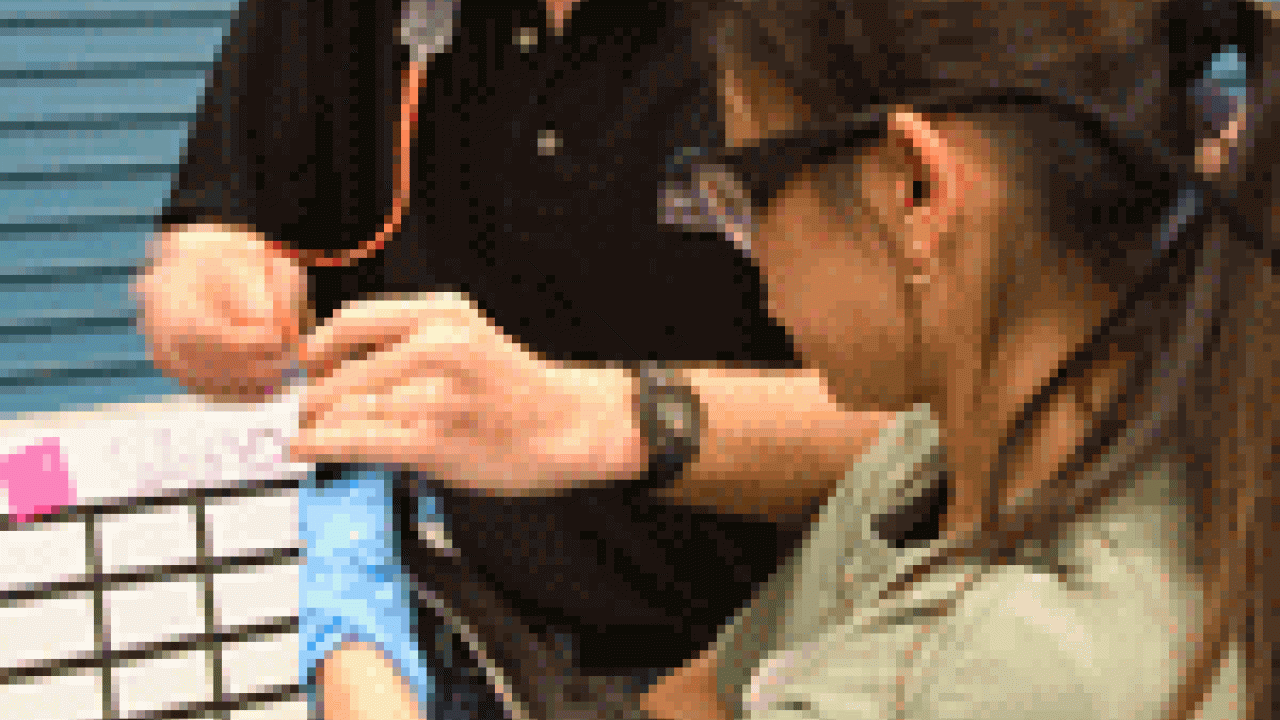Michael Ziccardi, associate professor of clinical wildlife health at UC Davis, cannot make it to our interview because of an urgent call. The Oiled Wildlife Care Network, of which he is the director, was working in overdrive last fall to protect the thousands of marine animals threatened by the recent San Francisco Bay oil spill. "I wear a lot of hats," Ziccardi said over the phone. "But I enjoy what I do."
Ziccardi, who splits his time between teaching two UC Davis classes on free-ranging wildlife and helping care for animals affected by oil crises, spent considerable time last fall organizing relief efforts and volunteers who turned out to help animals affected by the Nov. 7 oil spill in the San Francisco Bay.
Helping wildlife out in times of crisis is a passion of Ziccardi's. After earning his veterinary medicine degree and doctorate at UC Davis, he graduated in 1993 and soon thereafter began working with the Oiled Wildlife Care Network. "I've been there since its inception in 1994," he said.
The program is a statewide collective of wildlife care providers and regional facilities focused on working with oil-affected wildlife. Using what Ziccardi calls the Four R's to provide the best achievable treatment to endangered wildlife — Readiness, Response, Research and Reaching Out — the Oiled Wildlife Care Network is a state-run program.
"We receive money from the state through the Department of Fish and Game. What we do is manage 25 different organizations through the state part of the network," he said.
Besides being on call for any oil spill and its ensuing wildlife disaster, Ziccardi said that other purposes for the network are research, for which, "we're given $250,000 per year in research grants studying the effects of oil on wildlife," and educating the public. "We educate K-12 children, people on the collegiate level, and industry, on seabird health and the effects of oil on wildlife," he said.
Although Ziccardi's participation is not insubstantial, he is most thankful for all the people involved in the network.
"The really rewarding thing is the number of volunteers and organizations involved. Thousands take their time to help these animals."
What is your guilty pleasure?
Jelly Belly jelly beans are my guilty pleasure. I have a Jelly Belly machine in my office. You know when other people are having a bad day because they come in a lot to take the candy.
What is your favorite campus place?
My favorite place was the old Silo, before it was renovated. It was the place where the vet students hung out. Now, my favorite place is probably the new veterinary teaching building, Valley Hall.
What are some interests of yours? When I have spare time I enjoy soccer. My family, I have a wife and two daughters. And I do enjoy woodworking and working with my hands.
What is the best part of your job?
I am never bored. There's a lot of things that need to be done and can be done. We are one of the few organizations in the world who have gone as far as we have studying how oil affects wildlife. We're making a good system better.
What is the worst part?
We are responding to an environmental crisis. Animals are injured and do die, and that can be a downer. What's nice is trying to do the best job possible. The people I work with are wonderful. The other worst part was being away from my family for two weeks during the oil spill in San Francisco, but they understand that it's important.
What is surprising about you?
I am not nearly as serious as people assume I am at first blush. Keeping things light in the face of adversity (especially during emergencies) helps keep the team working well.
Read any good books lately?
Just before the spill, I had finished re-reading Cat's Eye by Margaret Atwood, and had started in on re-reading Prodigal Summer by Barbara Kingsolver. I look forward to getting back to it soon!
Who or what has influenced you to do what you're doing now?
Growing up, I knew I was interested in marine biology. It hasn't veered much since I was four years old. With oil spill response, it's in legislation. In California, wildlife affected by oil receives the best achievable care under the law. I have the backing of California to do the best work possible for animals affected by our actions.
Haley Davis is a former Dateline writing intern.
Media Resources
Clifton B. Parker, Dateline, (530) 752-1932, cparker@ucdavis.edu
